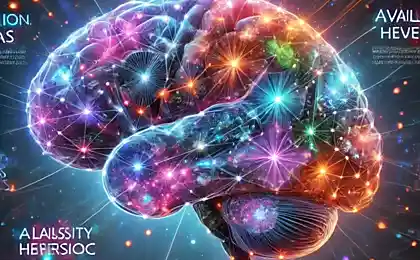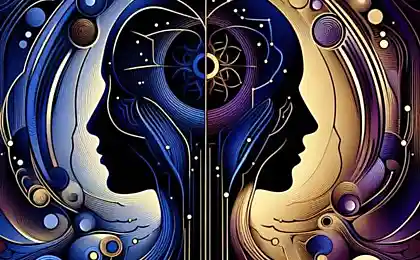171
Breakup neurochemistry: Why is it so hard for us to forget our exes?

The Nature Neuroscience Study (2023) found that memories of ex-partners are activated. 27% more neuronsthan the current relationship. This paradox is explained by a unique cocktail of neurochemistry and evolutionary expediency.
3 Neurobiological Traps of the Past
- Dopamine ruinsThe brain remembers the peaks of emotions, not reality
- Cortisol glue: Breakup stress increases fixation
- Oxytocin vacuumAttachment hormone creates chemical breakage

Cognitive Distortions by Festinger 2.0
The Zeigarnik EffectThe brain remembers unfinished relationships 90% brighter
Lost Future SyndromeFantasy replaces real experience
Narrative distortionThe brain rewrites history, softening the negative
Why social media is a digital morgue of relationships
The Journal of Social Psychology (2024) found:
View ex profile 1 time per week Complete digital breakup + 89% anxiety-63% recovery time
“Love is an addiction approved by nature. Breakup is a breakup in which the brain behaves like an addict in search of a dose of the past. ?
– Dr. H. Fisher, Anthropologist, Rutgers University

5 Steps to Overwrite Neural Tracks
- ChronotherapyCreate new memories during dangerous hours
- Sensory detoxEliminate triggers (smells, places, music)
- Neuroplastic diaryDescribe the relationship from a third person
- Hormonal balancePhysical activity increases GABA
- Quantum metaphorThink of the past as a closed time loop.
The historical paradox: how the greats coped with the gaps
Friedrich Nietzsche: turned personal drama into a philosophy of the superman
Frida Kahlo: Redirecting pain into art
Leonardo da Vinci replaced romantic love with intellectual passion
Your memory is not an enemy, but an archivist.
According to a 10-year study by the University of Cambridge, complete “removal” of the former from memory is impossible – and not necessary. The optimal strategy is to move them from active processes to cold storage. Remember, the brain does not cling to a person, but to its own neurochemical history. As Borges wrote, “Oblivion is a form of memory whose rhythmic wave erases the shores of the past.”
Warm to yourself: how good self-attitude rebuilds the brain and creates a new reality
Hedonism 2.0: Why Your Brain Sabotages Happiness and How to Fix It























